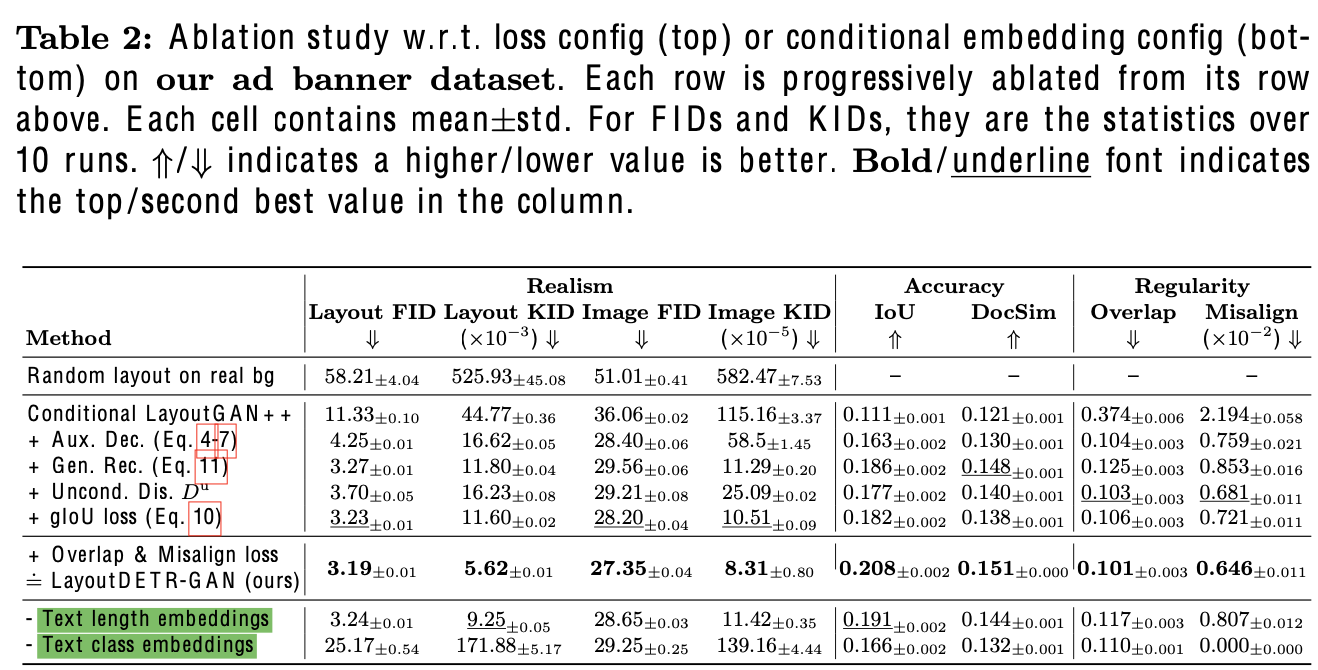[Layout] LayoutDETR: Detection Transformer Is a Good Multimodal Layout Designer
[Layout] LayoutDETR: Detection Transformer Is a Good Multimodal Layout Designer
- paper: https://arxiv.org/pdf/2212.09877
- github: https://github.com/salesforce/LayoutDETR
- archived (인용수: 9회, ‘24-11-13 기준)
- downstream task: Content-aware Layout Generation (ad-banner, mobile UI app)
1. Motivation
-
Generative Models들은 디자인 자동화를 scale-up했지만, graphic layout design을 하기 위한 designer들의 요구를 들어주기 어려운 면이 있다.
-
왜? Background 영역을 조건으로 forgroung 이미지를 재배치하기 위해서는 Background 영역을 잘 “검출”하고, multimodal forground element들을 타당하게 재배치 및 크기 변경해야 하는데, GM 은 이러한 능력이 결여 됨
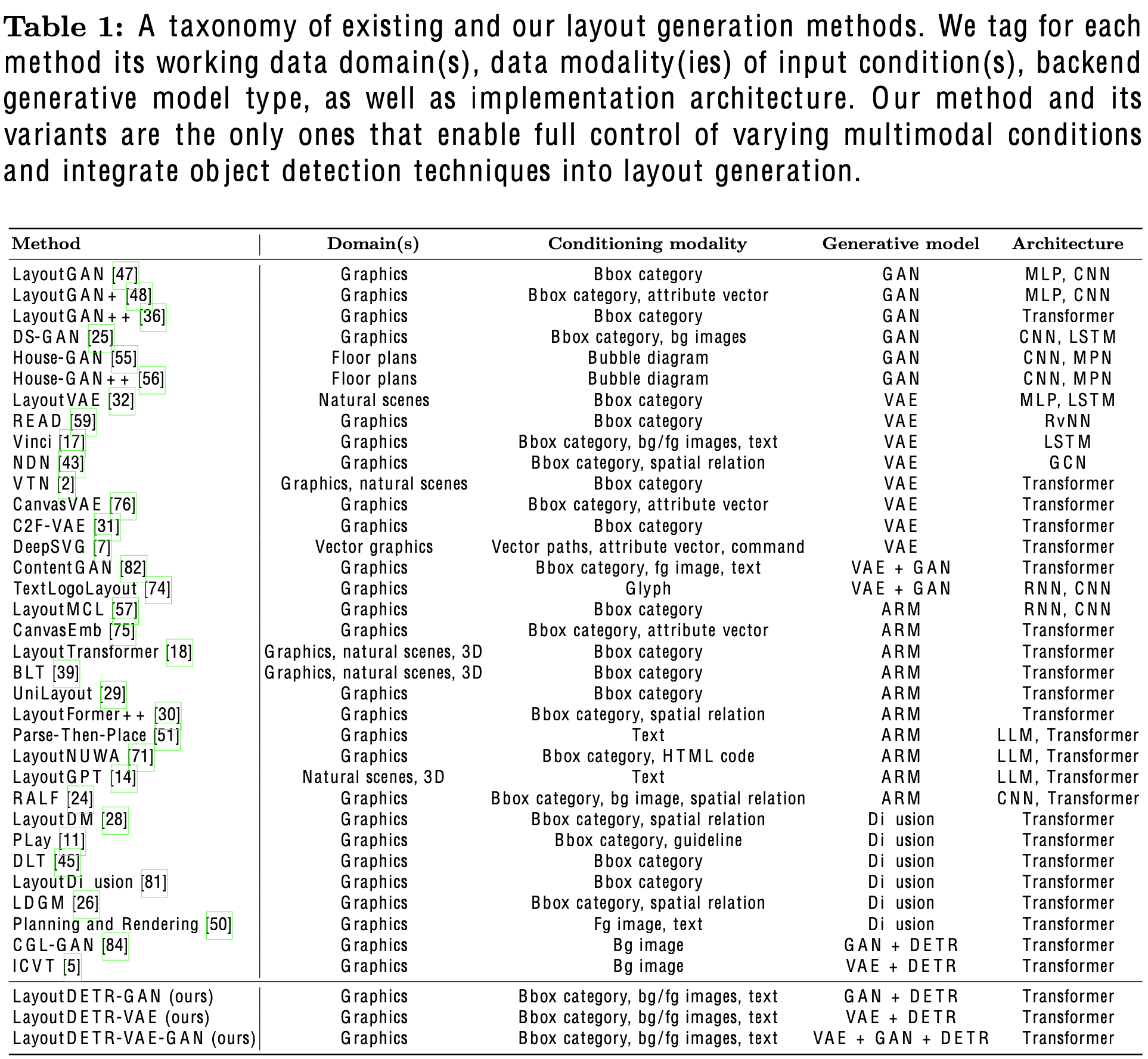
$\to$ Content-aware layout generation 문제를 Detection 문제로 바라보고, layout의 박스를 예측하는 문제로 바라보면 어떨까?
- forground layout의 분포를 학습하는 능력
- background image의 모양과 의미를 학습하는 능력
- foreground image의 모양과 의미를 학습하는 능력
- background & foreground 정보를 결합하여 foreground의 bbox 정보를 생성하는 능력
2. Contribution
-
서로 연관되지 않은 두 분야, layout generation과 visual detection을 연결하는 framework인 LayoutDETR을 제안함
- “detection” == “generation”이 어떻게 실현가능 한가?
- “layout” concept을 학습하기 위해 GAN discriminator, Layout Encoder를 도입
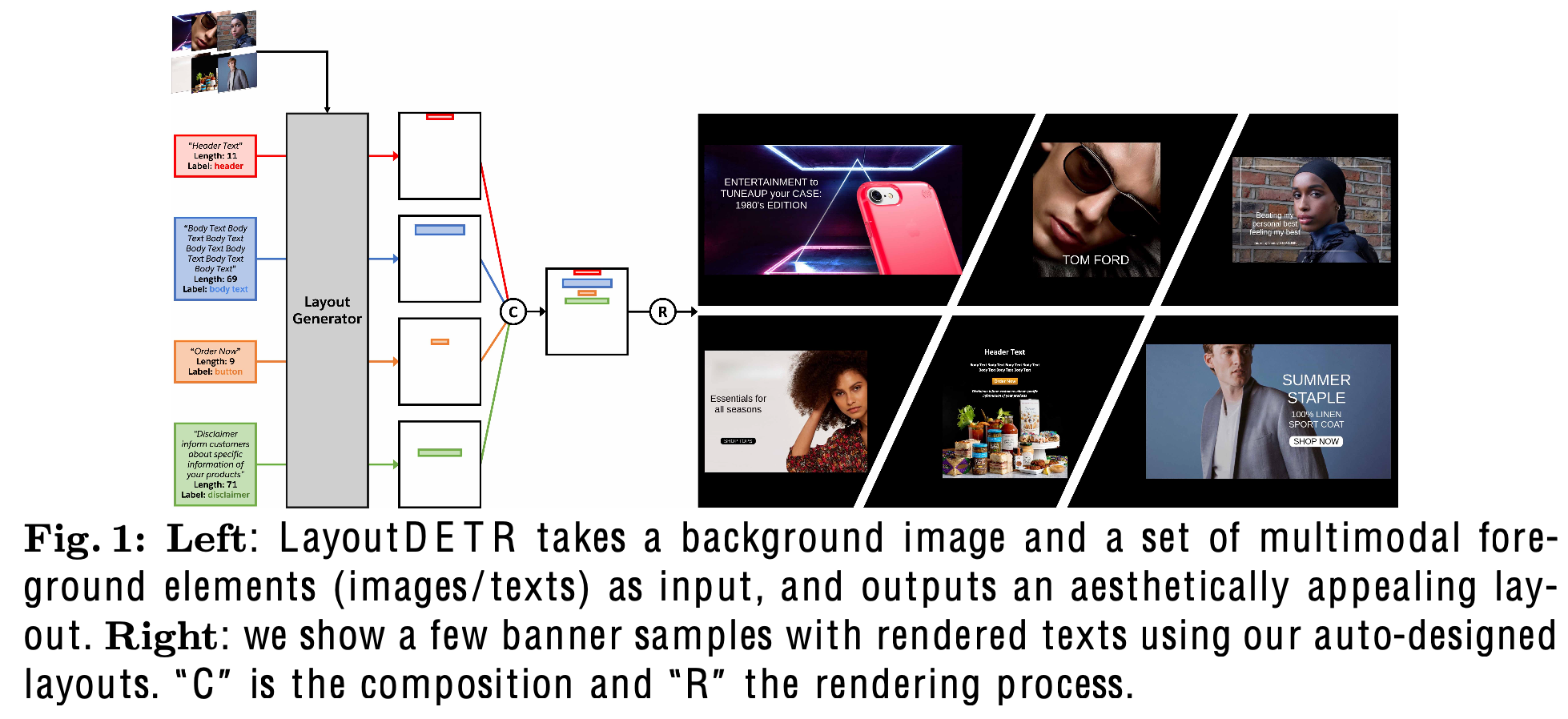
- input
- background image
- Foreground elements
- text: text 길이 정보, label 정보 (ex. subject, body, etc), text content
- non-text: image
- “detection” == “generation”이 어떻게 실현가능 한가?
-
대량의 ad-banner dataset을 제안함
- text bbox, text categories, text content 등 포함
-
6개의 evaluation metric에서 SOTA
-
Graphical system & User study 진행함
3. LayoutDETR
-
문제 정의

- G: Layout Generator
-
z: Layout Generator의 입력되는 latent noise vector
-
Layout L = {b$^i$}$_{i=1}^N$

-
text element

- s$^i$: i번째 text element의 context
- $c^i$: text label {header, body, disclaimer, button}
- $l^i$: text string의 길이
-
image element

- p$^i$: i번째 image element의 patch 정보 (ViT)
-
- 관심 없는 요소 (button underlay, embellishment)는 background로 변경하여 진행
-
Overall Architecture
- 4개의 모듈로 구성: Encoder, VAE, GAN, Decoder
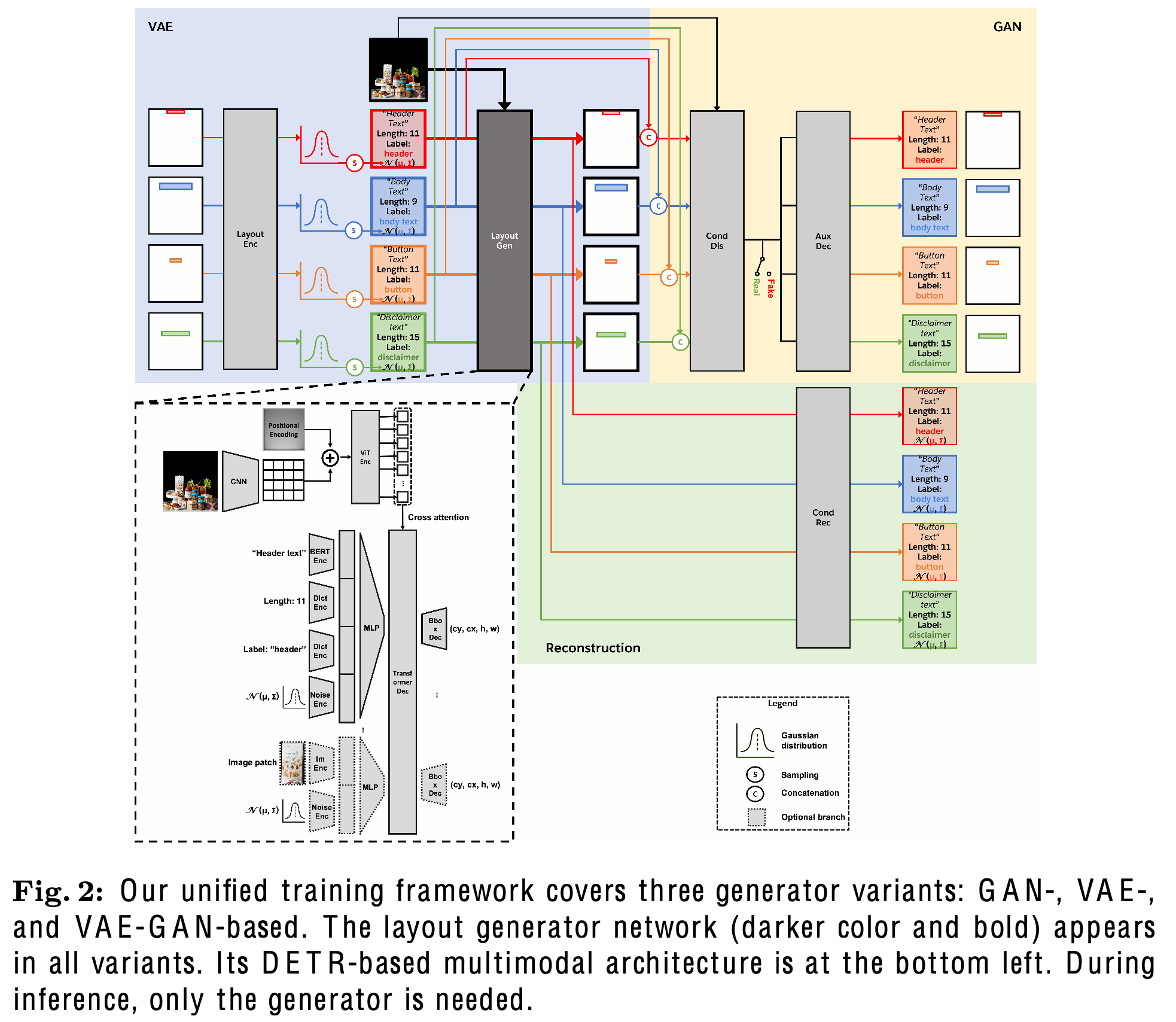
3.1 Generative Learning Frameworks
-
GAN Variant
-
Generator: Layout-DETR
-
discriminator
- $D^c$: multimodal conditional discriminator
- input: L, B, $T \cup P$
- output: {0,1}
- 1: ground truth layout
- 0: generated layout
- $D^u$: multimodal unconditional discriminator
- input: L
- output: {0,1}
- $D^c$: multimodal conditional discriminator
-
Honey Tip
-
irregular bbox에 insensitive한 경향이 있음 (ex. 우측 하단에 있는 header text는 학습 중에 무시하게 됨)
$\to$ position-aware regularization을 통해 해소
-
-
Decoder
-
Bbox를 reconstruct하는 auxiliary decoder를 discriminator에 추가함
-
bacground, foreground elements를 안보고, layout을 예측한 결과(unconditional)가 이 모든걸 보고 (conditional) 예측한 결과랑 유사해지도록 학습
$\to$ layout 자체만 집중하여 학습하는 효과

-
-
-
Loss
-
GAN Loss
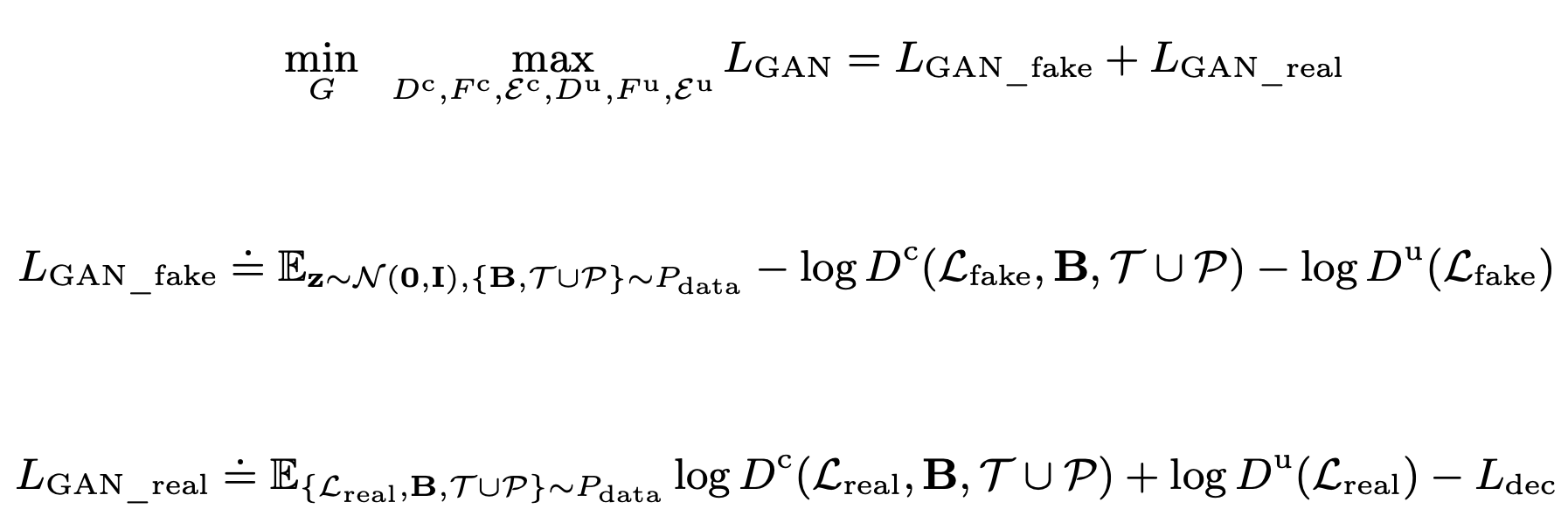
-
Reconstruction Loss
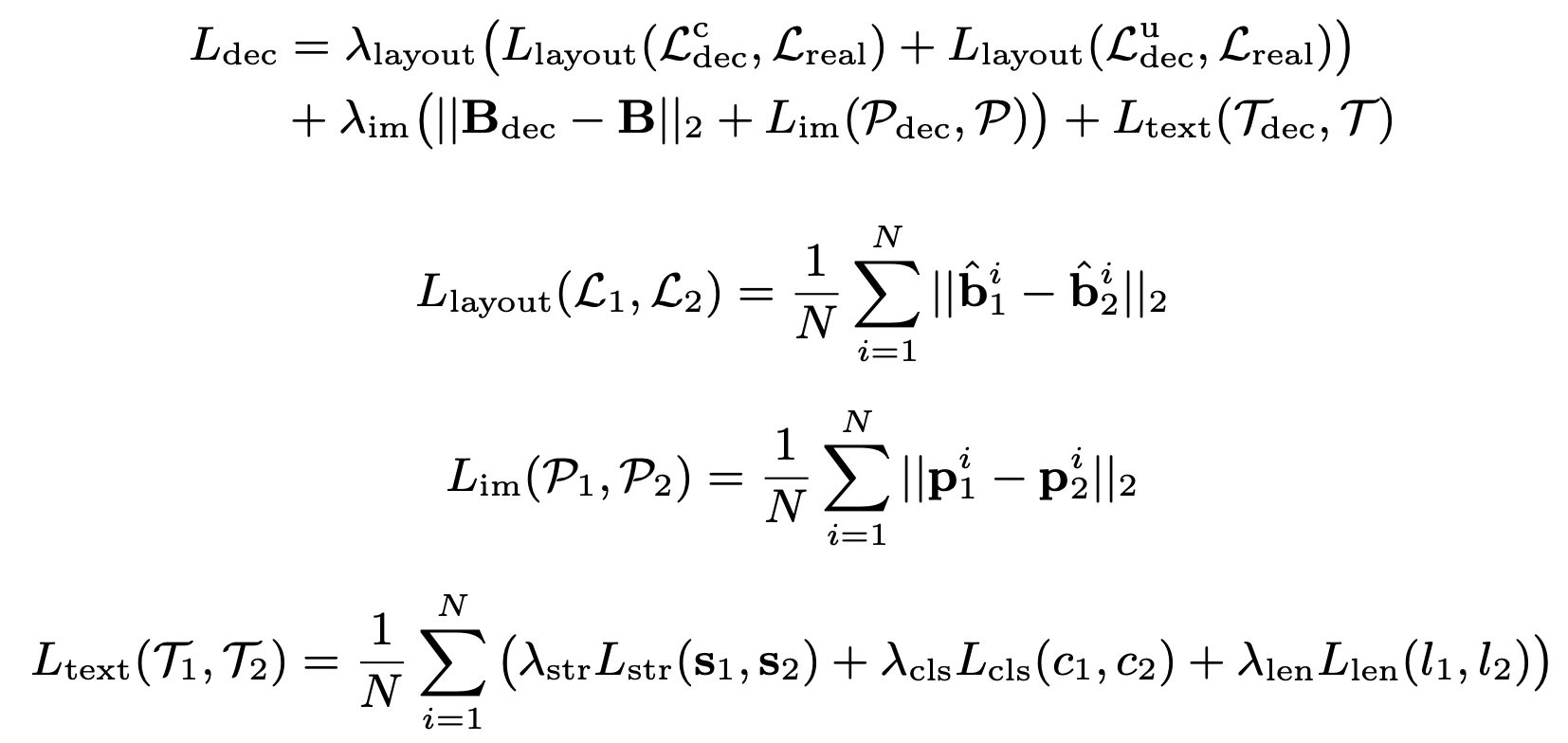
- $L_{str}$: auto-regressive loss
- $L_{cls}$: standard classification loss (CE loss)
- $L_{len}$: 256개의 quantized된 length class에 대한 CE loss
-
-
-
VAE Variant
-
VAE framework: Generator G가 encoder E와 동시에 학습되는 framework
-
Encoder E

- input: Ground Truth Layout
- output: latent vector z
-
해당 출력은 Gaussain sampling으로 Generator에 입력으로 들어감

-
-
Loss

-
-
Total Loss

3.2 Additional Objectives
-
GIoU Loss

- $L_1, L_2$: Ground Truth Layout, Prediction Layout
-
Auxiliary Reconstruction Loss
-
목적: input의 controllability를 향상

-
-
Overlap Loss
-
목적: element간에 overlap을 방지하고자 함

-
-
Alignment Loss
-
목적: 미적으로 아름다운 layout은 6개 중 1개의 alignment를 갖고 있음 (left, horizontal-center, right, top, vertical-center, bottom).

-
-
Total Loss

3.3 DETR-based Multimodal Architectures
- DETR-decoder 기반
- 차이점: learnable object queries $\to$ foreground embeddings로 대체
- text 요소의 경우, BERT의 embedding, text class embedding (learning dictionary), 그리고 text length embedding (learning dictionary)로 대체
- 차이점: learnable object queries $\to$ foreground embeddings로 대체
3.4 Ad Banner Dataset
- Source: Pitt Image Ads Dataset
- Text class: 4개 (header text, body text, disclaimer text, button text)
- logo: header text로 대체
- text string은 OCR engine으로 추출
- 7,196개의 English character로만 구성된 ad-banner dataset
4. Experiments
-
정량적 평가
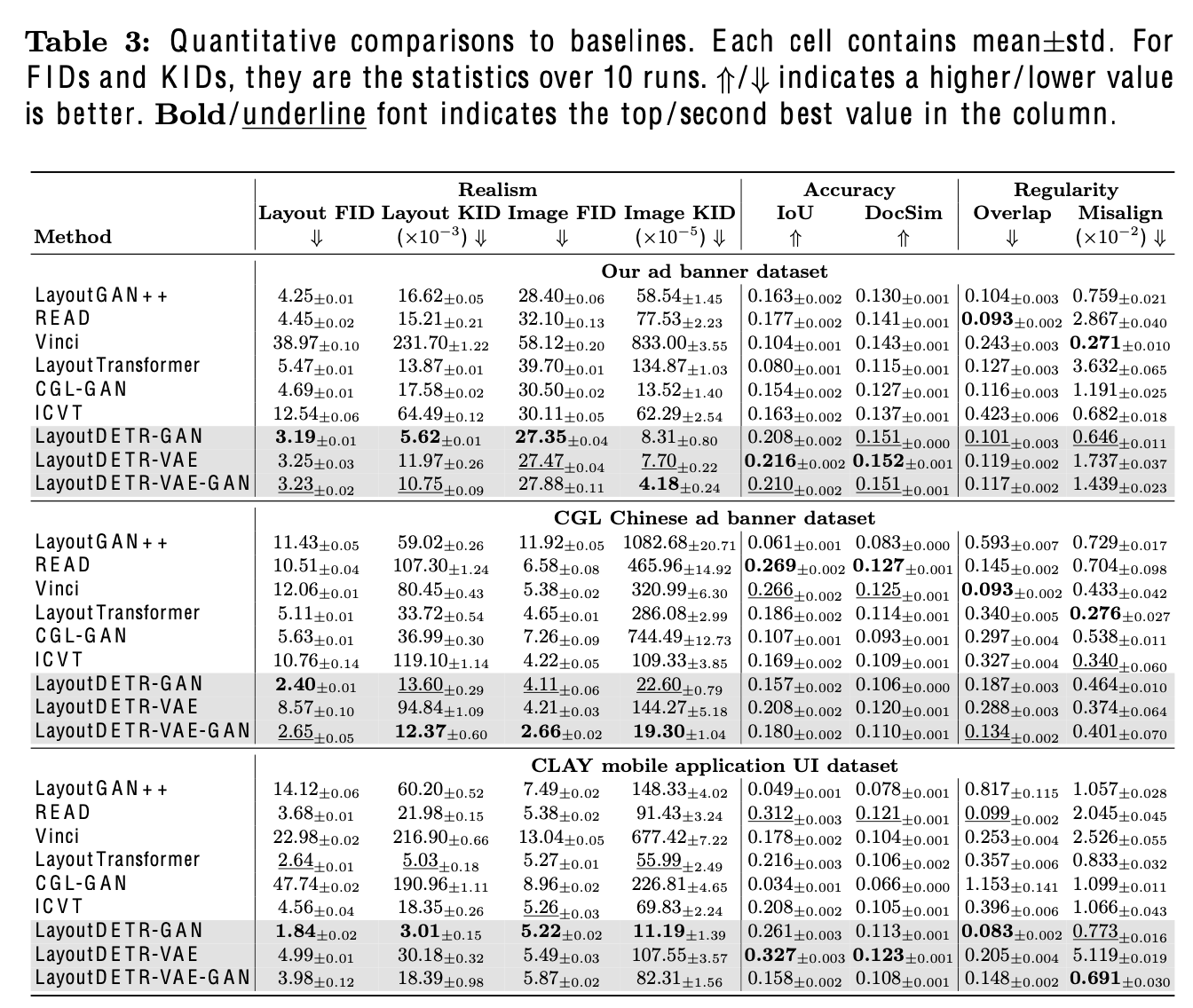
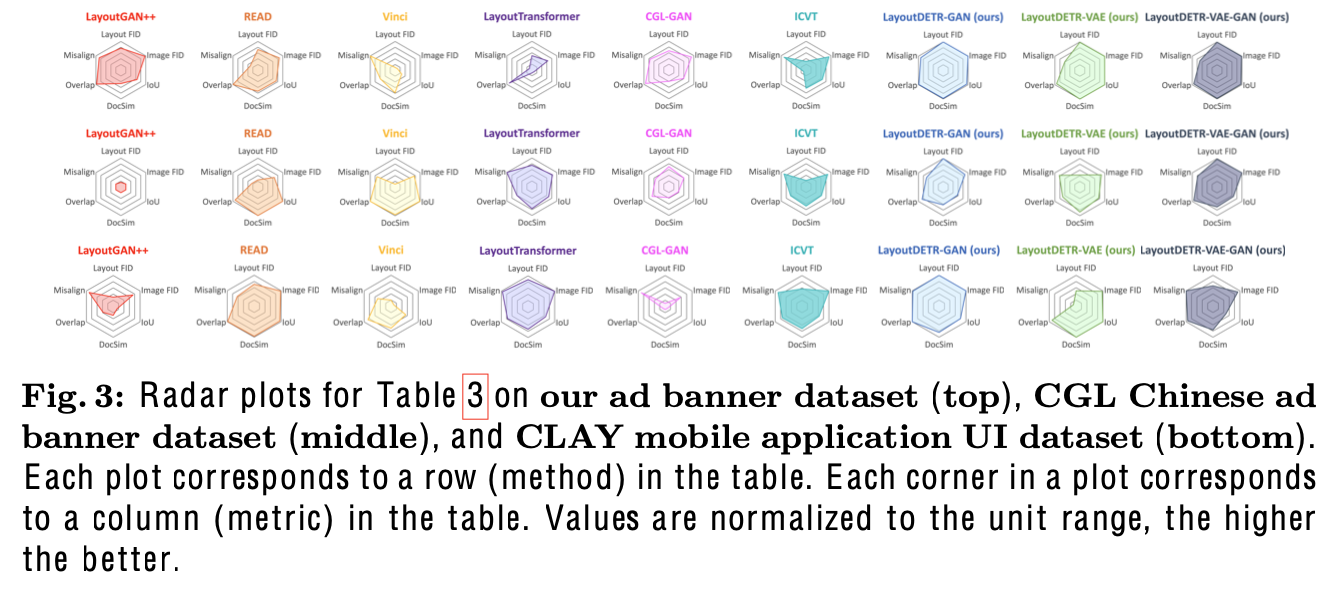
-
정성적 결과
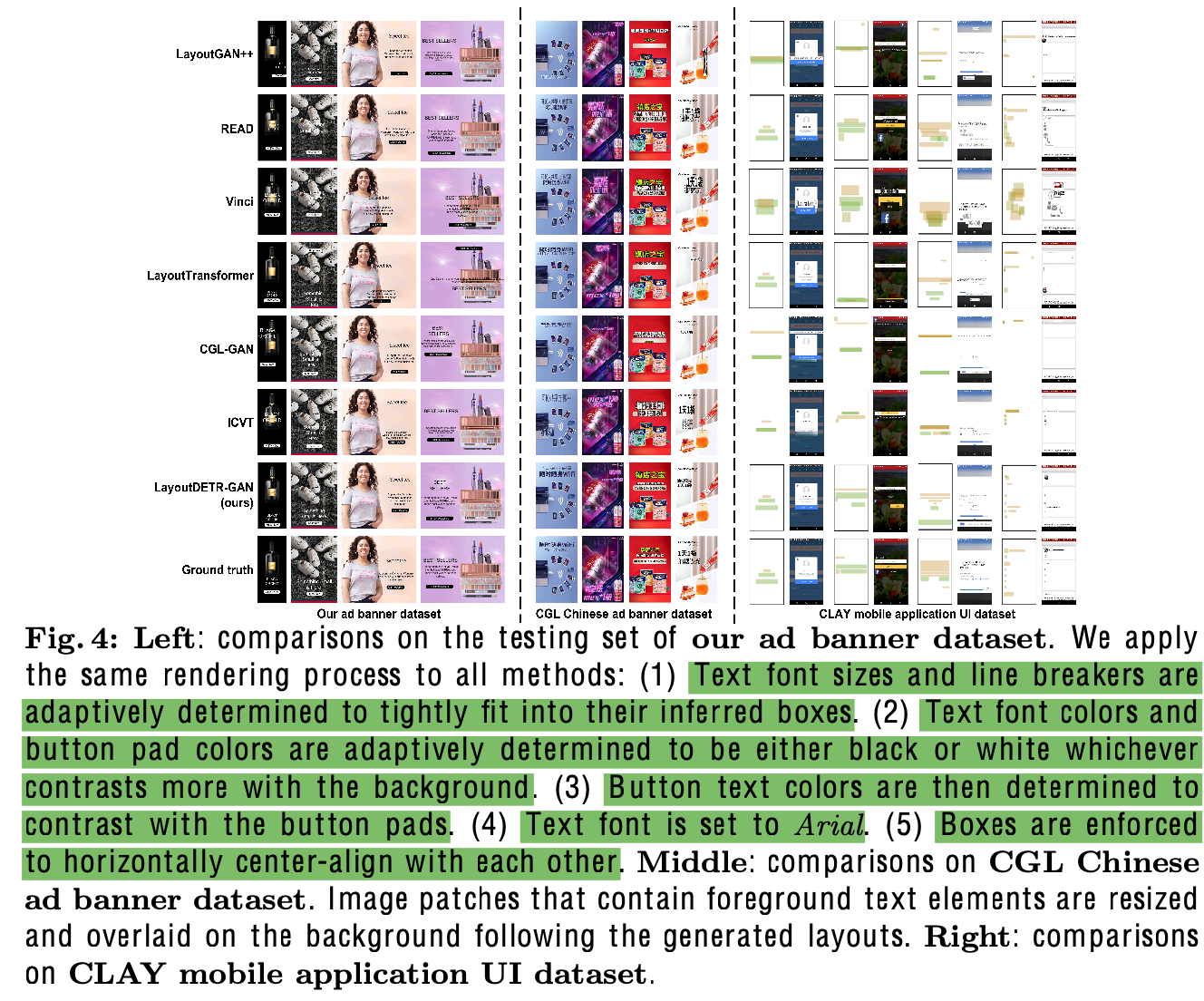
-
User preference 결과

-
Ablation Studies
